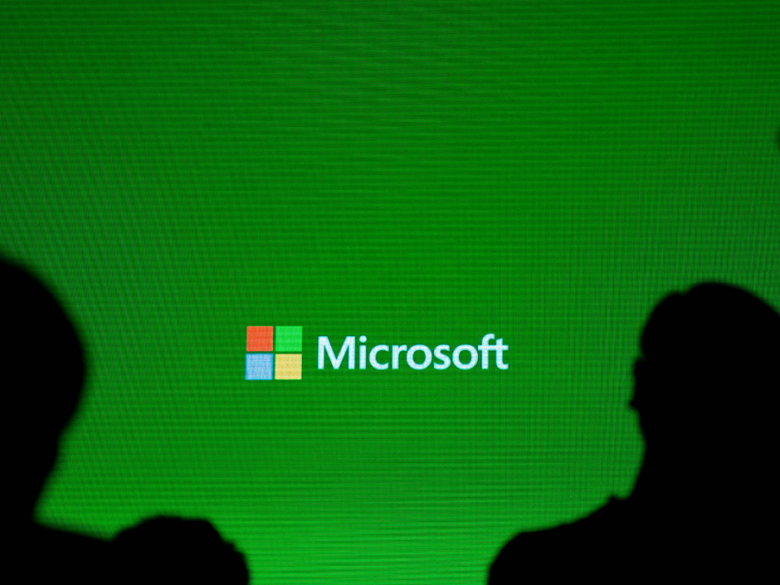No laughing matter: Microsoft Corp has turned Bing from a joke into a serious ad business

Bing has long occupied a place in Microsoft’s gallery of boneheaded products with the Zune music player, Clippy and the little-remembered Kin smartphone. Microsoft spent billions of dollars of shareholder money in a quixotic attempt to build a web-and-search empire that could compete with Google. Even the name Bing is worthy of ridicule.
Bing is still no Google. But without much notice on Wall Street or beyond, Microsoft has turned into a quiet giant in digital advertising.
Bing is on track to generate roughly US$5.3 billion in revenue for Microsoft’s fiscal year ended June 30, based on the pace of sales during the previous nine months. Here’s some context: Web search and advertising are among Microsoft’s lowest-priority businesses, yet Bing’s revenue is more than Yahoo’s sales over the last 12 months, and two-and-a-half times Twitter’s advertising revenue. Bing’s yearly revenue may top what Microsoft makes from selling Windows PCs to consumers, based on some rough 2015 disclosures.
Revenue is also growing nicely. Bing’s 43 per cent growth in search advertising revenue in the nine months ended March 31 is not far off YouTube’s 50 per cent growth rate, UBS estimates. Microsoft has also managed to turn Bing from a money pit that in some years posted billions of dollars in operating losses into a business that Microsoft says is profitable.
Bing’s revenue is still dwarfed by digital advertising giants Google and Facebook. But Bing’s slow reversal of fortune is impressive and a credit to three classic Microsoft characteristics: patience, pragmatism and partnerships. Microsoft’s transformation of its onetime laughingstock could also be a blueprint for the current Microsoft sad-sack product, its smartphone business.
Perhaps most crucially, in the year-old Windows 10 operating software, Bing search gets a pole position on the computer home screen in the guise of Microsoft’s Cortana digital assistant. Microsoft said this spring that more than 35 per cent of its search revenue in March came from Windows 10 computers. Ubiquitous Bing has been the revenue-boosting strategy, and it worked. Microsoft pulled in US$3.2 billion in advertising sales four years ago, and it will be well above US$5 billion just from Bing web searches in the just-ended fiscal year.
Microsoft has also tackled the cost part of the equation by outsourcing large chunks of its advertising operation to digital ad specialists such as AOL and AppNexus. Those two companies took over selling some ads on Microsoft websites including MSN.com and Outlook.com web email. That means Microsoft could cut its own ad sales staff and collect what is likely high- margin revenue from the two middlemen. The revenue Microsoft discloses for Bing doesn’t include its share of ad sales from the AOL and AppNexus deals.
One potential wrinkle in Bing’s impressive transformation is that Microsoft’s search arrangement with Yahoo has been a crucial element of Bing’s growth, and it’s unclear what happens to that deal if and when Yahoo sells its web businesses. The companies’ 2009 partnership contract makes no mention of what happens if Yahoo is sold. It’s possible that portion has been redacted.
Of course, Microsoft’s main business isn’t online advertising. That’s why in the last four Microsoft earnings conference calls, company executives fielded zero questions about Bing and its ad businesses. Expect the trend to continue when Microsoft discloses its quarterly financial results on Tuesday.
Microsoft’s transformation of its onetime laughingstock could also be a blueprint for the current sad-sack product: its smartphone business
Even though the cloud, and not Bing, is the heart of Microsoft, tech companies that aren’t ad specialists are finding advertising can provide a useful jolt to revenue and to business strategies. Amazon, for example, is using ads to subsidize the cost of gadgets including its Fire tablets and other companies’ smartphones.
For Microsoft, it’s intriguing to think of Bing as a model for the company’s red-ink gushing smartphone business. Like at Bing, costs and the scope of ambition are being pared way back with a goal of eventual profits. At the very least, Bing is an example of Microsoft turning an ugly business into a nice one that plugs some revenue holes and proves the company can win in the very, very long game.
For Microsoft, Yahoo, Twitter and YouTube the figures here are for gross revenue before striping away the commissions the company pays to advertising partners. In Microsoft’s case, those payments to partners, including Apple and Amazon, are growing faster than the money Microsoft keeps. Excluding those payments and adjusting for a strong dollar, Microsoft says Bing’s revenue rose 22 per cent in the nine months ended March 31 compared with figures in the period a year earlier. There should be more details on Microsoft’s ad sales in the company’s annual filing with the SEC, which it tends to release at the end of July. It’s tough to know what Microsoft means by “profitable” in a business like Bing that doesn’t have its own profit-and-loss statements.
The Bing deal is even more essential to Yahoo and its potential new owners. The web search deal with Bing was responsible for about 35 per cent of Yahoo’s revenue in 2015. In total, Yahoo now generates more than half of its revenue before partner commissions from web search ads sold by partners Bing and Google and by its own Gemini advertising technology.



